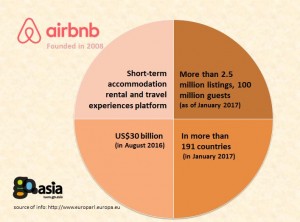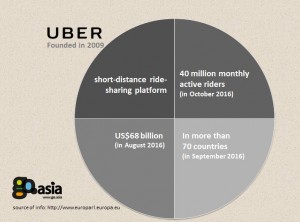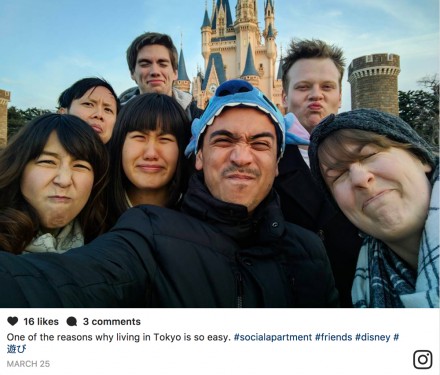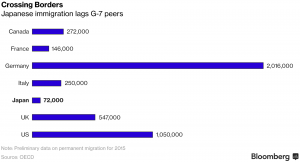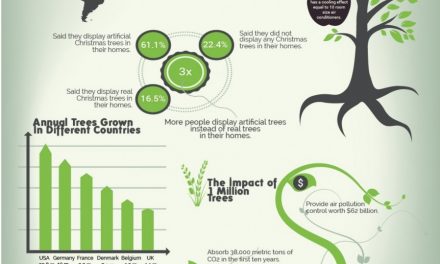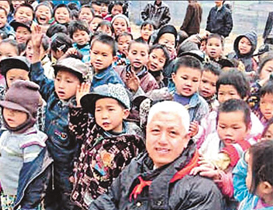The more we share, the more we have. With the rise of sharing economy, entrepreneurs tend to get involved in startup in terms of co-working, co-living, bicycle sharing, umbrella sharing and ridesharing in recent decade. Undoubtedly, most of successful entrepreneurs relied on a well designed & responsive communication platform, such as website and mobile apps as a key tool for information sharing & business matching.
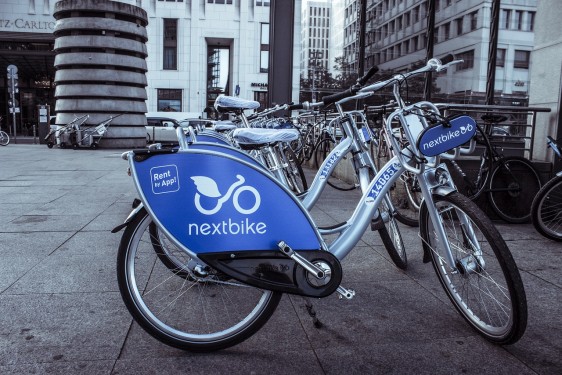
Bike-sharing companies can worth more than 1 billion in China and the business is still growing.
Dare to dream? The Internet can make it come true!
For example, Airbnb and Uber are the best applications of internet to link up users for business. Without the internet, Airbnb will just be a business having branches across countries and not be so easy to provide 24 hours’ self-service to global traveller.
Co-living proof the possibility of sharing economy
Apart from economic view on sharing economy, the nature and belief of fully utilising a product or space is also an action towards a sustainable way of living. Co-living first appeared at the 60s in Denmark. At that time people are looking for free and happy community or a utopia for living. Later it developed as sharing resources with a sense of protecting the environment by eliminating wastage. As for the modern world, most co-living space across Asia is tailor-made for the younger generation, providing them with an affordable space with quality and mobility for living.
The future of sharing economy will keep evolved with more possibility.
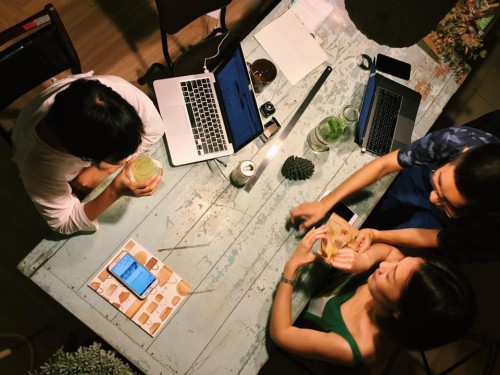
Space for the youngster, 9floor in Taiwan
“22K” is the nickname of these generation Taiwanese graduates who earn NT $ 22,000 monthly on average. Compared with the average income of graduates in Hong Kong, the Taiwanese earned 10 times less. Yet, it doesn’t mean that Hong Kong young people live a better life since there is a big difference of the life index between the two places. In fact, all young people living in a big city has to face the problem of housing, including high rent and lacking space. 9floor in Taiwan is trying to help the young graduates by offering an affordable co-living space for them.
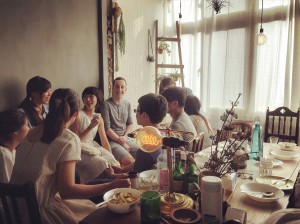
Co-housing: from idle space to community hub
9floor emerged as a housing service platform aiming to provide well-designed living space for youngsters. The 9floor apartment is also emphasising on social networking function. Taking the design example of Wenzhou at the 9floor apartment, all bedrooms are surrounding the central area, which is a public space for mingling and working. The apartment has been provided with a classification scheme to suit the needs of different people like the serenity apartment is serving people who just want to go home for rest; cross-generation apartment provides an opportunity for youngster who wants to live near senior people so that the guests have the opportunity to taste the home cooking from mother or grandfather alike.
More importantly, Co-housing apartments are located in the heart of the city, providing affordable and convenient accommodation for young people with low income. The monthly rent is about $ 11,500, which is only $ 4,000 less than the median rent in Taipei, but the location and interpersonal network are priceless.
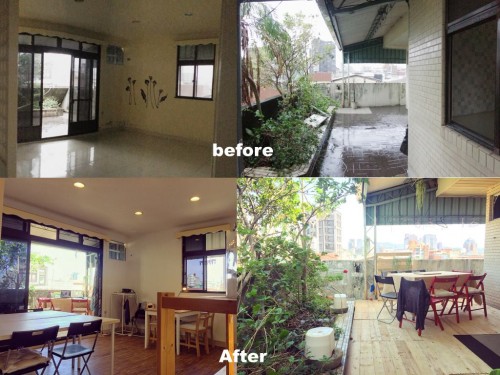
Cooperate with regional organisations to build cooperative community
In fact, 9floor also pay a close attention to social issues, such as working with the Homeless Taiwan organisation on KIGE studio for apartment repair projects. They hired old craftsmen to assist the disadvantaged groups to repair the home so as to improve the living environment. Many non-profit organizations are comfortable to organize activities with the 9floor, aiming to provide a number of communication platform for the community facilitation, like a non-profit organization called One-Forty who organized an activity “Southeast Asia Sunday”, inviting new immigrants, foreign workers gathered in the kitchen and cook Southeast Asian cuisines for the community members, apartment roommates to share, thereby enhancing the cultural exchange.
More on 9floors
Photo & Reference: 9floor, ettoday
Social Apartment – a New World Neighbors Culture in Japan
In face of ageing population in Japan, the number of foreign workers has jumped from about 486,000 in 2008 to nearly 908,000 in 2015. In which about 190,000 work under training/ guest workers program. However, many foreigners/ students are experiencing difficulties in finding housing due to complicated customs, language barriers and difference in lifestyles. The “shared house” living like Social Apartment is gaining popularity thanks to rising rents and bridging the social gaps among foreigners and Japanese in big cities of Japan in recent years.
Make affordable apartment with great living
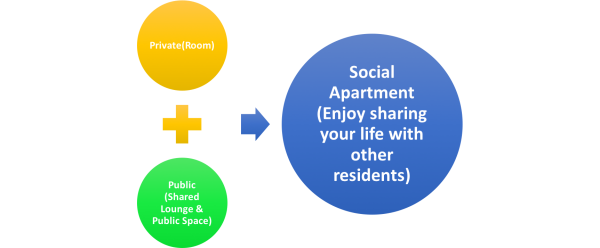
Since 2005, Social Apartment has been developed in over 40 locations across Japan including Tokyo, Kyoto & Nagoya with over 10,000 residents who usually rent from 3 to 12 months. “We try to keep initial costs low,” says Ryan, the representative from the developer of Social Apartment. “The costs of moving in Tokyo can really pile up and you can end up paying six months’ rent just to move in.” For short-term plans, utilities are fixed at ¥10,800 per month while tenants on the one or two-year plans only have to pay for their electricity. There’s no key money or brokerage fee to move in, and discounts apply for long-term contracts. This affordable offer especially attracts foreigners who desire to work, study or experience working holiday in Japan with great living.
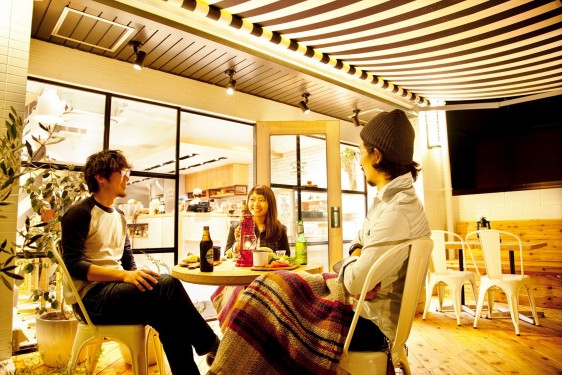
Lost in Translation? NO WAY !
According to an internal survey, the demographic of the tenants is around 80% Japanese & 20% non-Japanese. This is the best option for foreign people or students coming to the city, to get to know Japanese culture and make friends with social gatherings hosted by Social Apartment. Moreover, it is opened for overseas booking easily so it becomes another good news with the extension of working holiday visa policy to citizens of Australia, Canada, Denmark, Germany, France, Ireland, Korea, New Zealand, the United Kingdom.
According to foreign tenants, e.g. a couple from Australia, “It’s hard to make Japanese friends in Tokyo. Here you’re living with mostly Japanese people and they all want to talk to you. So you can practice Japanese, and they can practice English.” The entire residence is built to encourage interaction and communication. Out of the blue, students’ resident here sometimes got inspiration as they go through the intense process of shukatsu, or job hunting. “A girl got chatting with another guy who works for a PR company and ended up interning there. Now, she’s decided for sure that she wants to work in the industry.” When language and sociality are no longer a barrier, it possibly makes a young foreigner’s life open and connected in Asia.
Source of Information & Photo: Bloomberg, Social Apartment, Japan-guide


